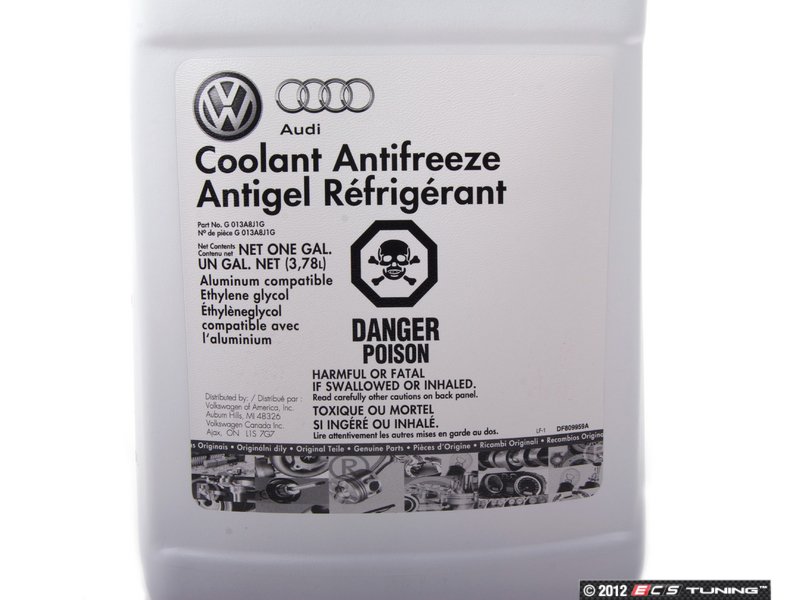
What I suspect is that VW isn’t yet able to produce enough of the G13 to supply markets outside of Europe. So there is a difference in manufacture, but it may not matter in actual use, and the final product may be identical. In comparison with the manufacture of traditional coolant additive, it is estimated that G13 production will produce 11 per cent lower CO2 emissions.

Glycerin, a bi-product of biodiesel production, is much less harmful to the environment than glycol-based products, which are produced from mineral oil. G13 coolant additive provides the same exceptional cooling and antifreeze performance as G12++, but is manufactured in an environmentally sustainable way, using glycerin instead of glycol. When liquid freezes inside an engine, it expands and could. This keeps the engine from overheating and prevents fluid inside the engine from freezing in the cold. Antifreeze has a higher boiling point and lower freeze point than water. Here’s some interesting info from a site: Antifreeze, or coolant, helps to keep your engine at the proper temperature and prevent corrosion. It seemed to start out as Europe-only and Skoda brand only. This coolant is also used in Porsche, Lamborghini, Bentley, Skoda, Seat. OEM Approved Audi VW TL 744-J G13 coolant antifreeze type. Compatible with all G11, G12+, G12++ coolants. This coolant was used in VW model years 2008-present. It appears that they are really the same thing, but G13 is produced in a slightly more "environmentally friendly" manner. NLA - Ravenol Coolant Antifreeze LGC Premix 20L.

I did quite a bit of research on G12++ vs G13.


 0 kommentar(er)
0 kommentar(er)
